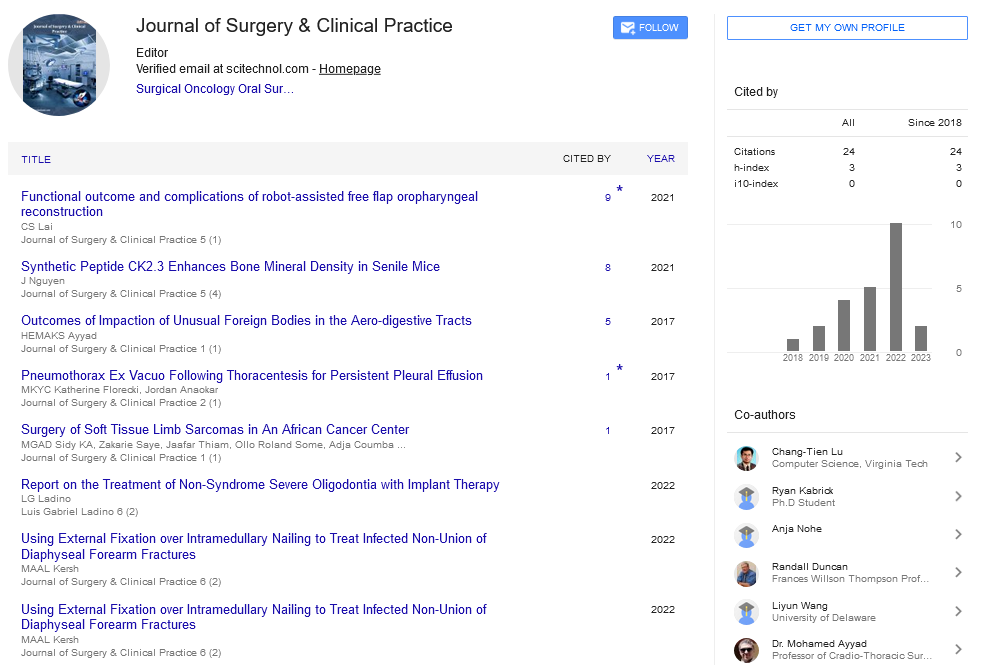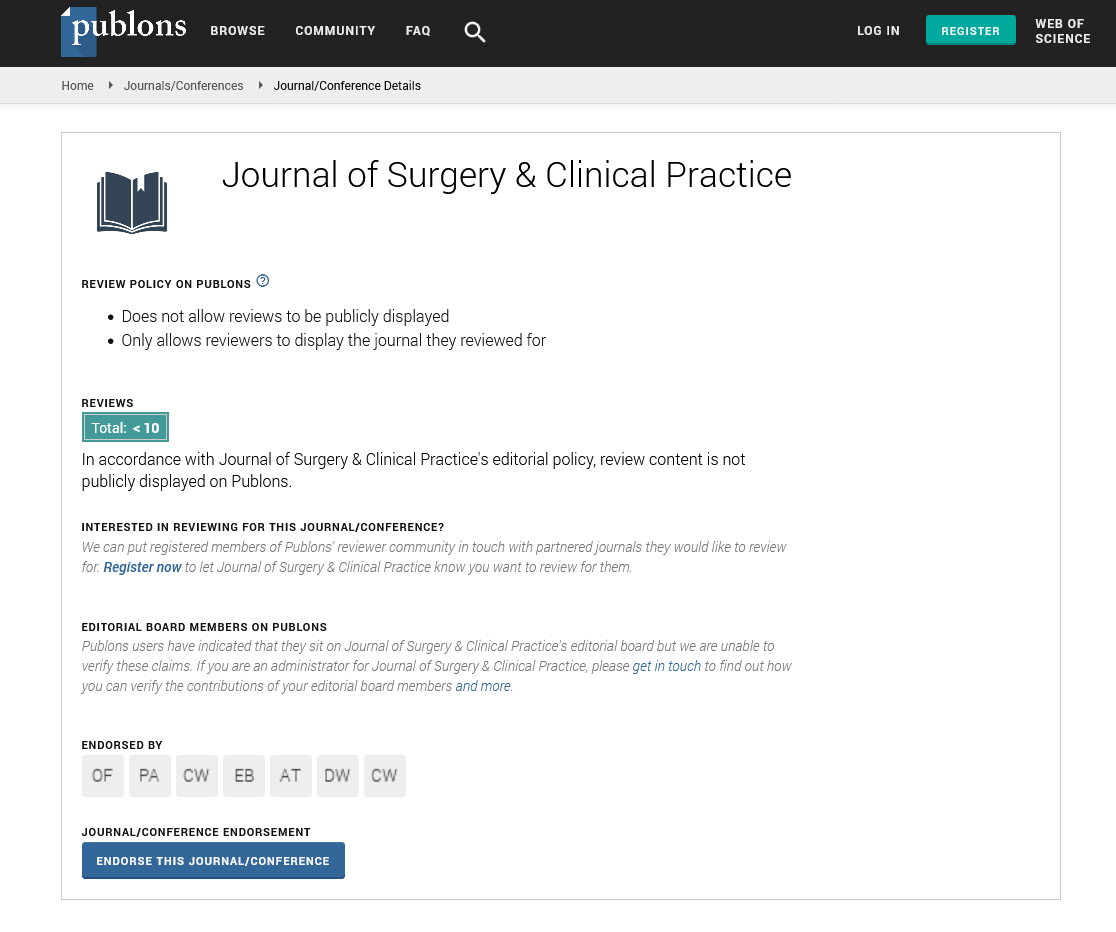Perspective, J Surg Clin Prac Vol: 7 Issue: 1
Importance of Pre-Operative Planning in Oral Surgery
Tara Mackay*
Division of Oral Surgery, University of Amsterdam, Amsterdam, he Netherlands
*Corresponding Author: Tara Mackay
Lauren Chong, Division of Oral Surgery, University of Amsterdam, Amsterdam, The Netherlands
E-mail: tara@macymic.nl
Received date: 21 February, 2023, Manuscript No. JSCP-23-95368;
Editor assigned date: 24 February, 2023, Pre QC No. JSCP-23-95368(PQ);
Reviewed date: 15 March, 2023, QC No. JSCP-23-95368;
Revised date: 22 March, 2023, Manuscript No: JSCP-23-95368(R);
Published date: 30 March, 2023, DOI: 10.35248/JSCP.23.7.100371.
Citation: Mackay T (2023) Importance of Pre-Operative Planning in Oral Surgery. J Surg Clin Prac 7:1.
Keywords: Oral Surgery
Description
Oral surgery is a specialized field of dentistry that deals with the diagnosis and treatment of various dental and oral health issues. Preoperative planning is a essential aspect of oral surgery that involves a thorough evaluation of the patient's medical and dental history, a comprehensive assessment of the oral and maxillofacial region, and the development of a customized treatment plan. The importance of pre-operative planning in oral surgery cannot be overstated, as it is the foundation for a successful outcome. The first step in pre-operative planning is a detailed medical and dental history. This involves a comprehensive review of the patient's medical conditions, medications, allergies, and previous surgeries. The dentist or oral surgeon will also inquire about any previous dental procedures, including extractions, root canals, or orthodontic treatment. This information is important in determining the patient's overall health status and identifying any potential risk factors that may impact the surgical procedure. Once the medical and dental history is complete, the oral surgeon will conduct a thorough examination of the oral and maxillofacial region. This includes an assessment of the teeth, gums, and jawbones, as well as a review of any imaging studies, such as Xrays or CT scans. The oral surgeon will also evaluate the patient's bite and occlusion, which is the alignment of the upper and lower teeth when the mouth is closed. This information is used to develop a treatment plan that addresses any dental or oral health issues.
The development of customized treatment plan is the most important aspect of pre-operative planning in oral surgery. The treatment plan is based on the patient's medical and dental history, the results of the oral examination, and the goals of the surgery. The treatment plan may include one or more surgical procedures, such as tooth extraction, bone grafting, or implant placement. The oral surgeon will explain the treatment plan to the patient and discuss any risks or benefits associated with the procedure. One of the key benefits of pre-operative planning is that it helps to minimize the risk of complications during and after the surgery. By conducting a thorough medical and dental history, the oral surgeon can identify any underlying medical conditions or medications that may increase the risk of bleeding or infection during the surgery. By evaluating the oral and maxillofacial region, the oral surgeon can identify any abnormalities or anatomical variations that may impact the surgical procedure.
In addition to reducing the risk of complications, pre-operative planning also helps to ensure a successful outcome. By developing a customized treatment plan, the oral surgeon can address all of the patient's dental and oral health issues including any cosmetic concerns. The treatment plan may involve a combination of surgical and nonsurgical procedures, such as orthodontics or periodontal therapy. By informing the patient’s entire dental and oral health issues, the oral surgeon can help to improve the patient's overall health and wellbeing. Patient education is another important aspect of it. The oral surgeon will explain the surgical procedure to the patient and discuss any pre-operative instructions, such as fasting or medication restrictions. They will also provide post-operative instructions, such as how to manage pain and swelling, and how to care for the surgical site. By educating the patient about the surgical procedure and postoperative care, the oral surgeon can help to reduce anxiety and ensure a smooth recovery.
 Spanish
Spanish  Chinese
Chinese  Russian
Russian  German
German  French
French  Japanese
Japanese  Portuguese
Portuguese  Hindi
Hindi 
